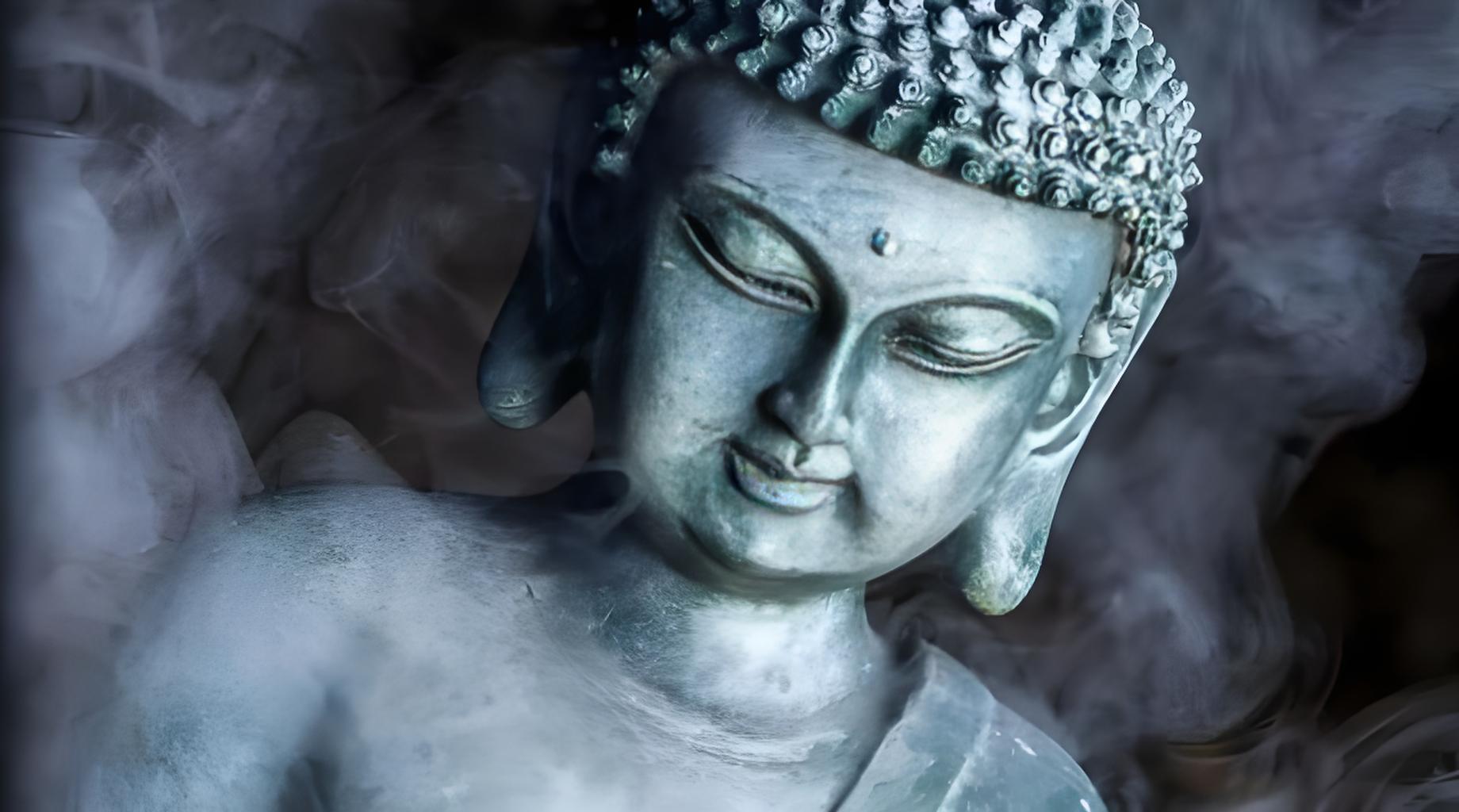Buddhism teaches that karma—the law of cause and effect—dictates the course of our lives. The Buddhist belief in karma suggests that every action, whether good or bad, has consequences, shaping our present and future experiences. In the following sections, we will explore how different actions align with the Buddhist understanding of karma and how they impact our lives.
Giving: A Gateway to Blessings
In the Buddhist worldview, generosity is highly valued. The Buddhist belief in karma emphasizes that the more you give, the more blessings you will receive. Many people, driven by greed or self-interest, constantly seek personal gain, often at the expense of others. However, those who are willing to give selflessly and help others are said to attract good karma and future blessings. When we give without expecting immediate returns, we are unknowingly laying the foundation for prosperity and good fortune.
The principle of karma asserts that life’s unseen moments—the acts of kindness, charity, and giving—are recorded in the heavens. These actions may seem like a loss in the short term, but they will be rewarded later in life. Thus, those who embrace generosity are likely to see their lives enriched by both material and spiritual rewards.
Gratitude: A Key to Smooth Living
Another vital aspect of Buddhist karma is gratitude. The Buddhist belief in karma holds that expressing gratitude for others’ kindness leads to a smoother and more harmonious life. When we appreciate the help we receive, we acknowledge the positive energy that surrounds us. However, those who are ungrateful and act with selfish motives may invite obstacles into their lives.
“A drop of water in kindness should be returned with a spring” captures the essence of how gratitude multiplies. By recognizing the good deeds of others, we create positive karma that leads to a smoother life journey. However, those who lack this virtue will find themselves isolated and facing repeated challenges. Therefore, embracing gratitude, no matter how small the act of kindness, will invite goodwill and ease in your life.
Helping Others: Creating More Benefactors
The Buddhist belief in karma teaches that helping others not only benefits those around us but also creates a network of support for ourselves. By offering assistance without selfish motives, we sow seeds of good karma. These actions build strong, positive relationships, which will eventually return to us in greater forms.
In life, benefactors often appear as a result of our past good deeds. When we help others, we create a cycle of kindness that continues to unfold. The Buddhist belief in karma suggests that when we show compassion, the universe will respond by sending us the help we need at crucial moments. Thus, by helping others selflessly, we invite more benefactors into our lives.
The Dangers of Complaining: How It Harms Your Karma
Complaints can have a significant negative impact on your karma. The Buddhist belief in karma warns that indulging in complaints only multiplies your troubles and attracts more misfortune. Complaining, often rooted in anger or frustration, harms your spirit and depletes the positive karma you’ve accumulated.
Anger, when left unchecked, is described in Buddhism as a fire that consumes good deeds, burning away the benefits of past actions. By focusing on negativity, individuals diminish their fortune. Over time, this mindset leads to greater misfortune. To safeguard your karma and avoid trouble, it’s important to let go of complaints and adopt a positive outlook on life.
Contentment: The Path to True Happiness
The Buddhist belief in karma also highlights contentment as a key factor in achieving happiness. The more we desire, the more we suffer, as unfulfilled desires create a cycle of dissatisfaction. “Man’s joys and sorrows, the moon’s waxing and waning, are all part of the imperfection of life,” as the Buddhist teachings remind us. Accepting the imperfection of life and learning to be content can help us attain true happiness.
When we are content with what we have, we align ourselves with the flow of karma. Desiring more than we need often leads to unhappiness, while embracing contentment helps reduce suffering. By letting go of the constant urge to compare ourselves with others, we free ourselves from the burden of desire and find peace within.
Facing Challenges: Why Avoidance Leads to Failure
Avoidance of challenges often results in missed opportunities and failure. The Buddhist belief in karma teaches that when we face adversity with courage and resolve, we plant seeds for future success. Those who shy away from difficult situations out of fear or weakness are not actively creating positive karma.
By accepting challenges and facing them head-on, we ensure that we are living in harmony with our karmic path. The outcome of any challenge may not always be what we expect, but by walking the path with sincerity, we align ourselves with the forces of destiny. Success or failure is not solely determined by circumstances but by the karma we create through our actions.
Sharing: The Key to Friendship and Prosperity
Sharing is a cornerstone of the Buddhist belief in karma. Whether it’s material wealth or spiritual knowledge, sharing with others enriches both the giver and the receiver. As the Buddha taught, helping others is as important as helping ourselves. The more we share, the more we cultivate good karma, which brings us closer to true prosperity.
Selfishness, on the other hand, limits our fortune and isolates us. By being open-handed with our blessings and resources, we increase our circle of friends and attract positive karma. Through sharing, we build relationships that contribute to both our personal growth and the welfare of others.
The Health Impacts of Anger: A Warning from Karma
Anger is one of the most harmful emotions in the Buddhist worldview. The Buddhist belief in karma suggests that unresolved anger not only damages our relationships but also harms our physical health. Chronic anger is linked to stress and illness, leading to a depletion of our good fortune.
To maintain good karma and health, it is important to release anger and embrace peace. The more you hold onto anger, the more likely you are to attract illness and misfortune. Instead, cultivate a positive attitude and a sense of humor. Laughter and joy naturally invite good fortune into our lives, keeping illness and misfortune at bay.
The Consequences of Taking Advantage of Others
Taking advantage of others is considered a serious karmic offense in Buddhism. The Buddhist belief in karma teaches that those who exploit others for personal gain will eventually face negative consequences. Wealth gained through dishonest means or at the expense of others brings no true happiness.
The law of karma dictates that what is meant for us cannot be taken by others, and any ill-gotten gains will eventually slip away. Those who accept losses with grace, however, are blessed with lasting peace. Accepting losses willingly allows us to maintain our integrity and good karma, while exploiting others leads to eventual loss and suffering.
Wealth and Wisdom Through Generosity
Generosity is the key to both material wealth and spiritual wisdom. The Buddhist belief in karma asserts that those who give with a pure heart accumulate both wealth and wisdom over time. Even small acts of kindness can generate immeasurable merit, while selfishness and greed limit our potential.
True charity stems from a sincere desire to help others, and it is not the amount given but the intention behind the gift that matters. By giving selflessly, we enrich our lives with blessings and wisdom. This is the essence of good karma, as it brings not only material benefits but spiritual growth as well.
Suffering and Enjoyment: A Balance in Karma
Life is a mix of both pleasure and pain, as the Buddhist belief in karma teaches. Those who live in luxury without appreciating the struggles of others may find their fortunes fleeting. Conversely, those who endure hardships often accumulate blessings and wisdom.
The law of karma suggests that our enjoyment must be balanced by our willingness to face difficulty. Those who waste their blessings or avoid challenges are likely to encounter suffering later. By embracing both the sweet and bitter aspects of life, we align ourselves with the natural flow of karma.
Continuous Learning: The Path to Wisdom
Lastly, the Buddhist belief in karma emphasizes the importance of continuous learning. Wisdom is the key to overcoming life’s challenges, and those who remain open to learning—whether through books, experiences, or spiritual teachings—are rewarded with deeper understanding.
Buddhism encourages us to seek wisdom, especially from Buddhist scriptures, which can guide us through confusion and suffering. By learning from both our mistakes and successes, we cultivate positive karma and move closer to spiritual enlightenment.


